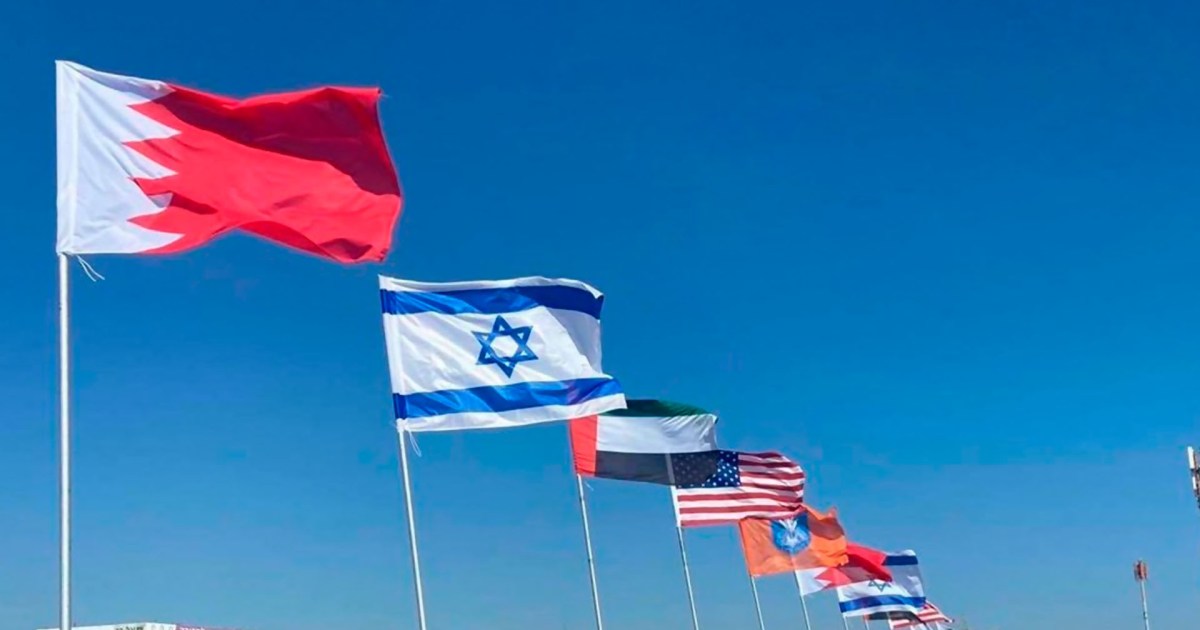There is no doubt that the disengagement between the United States and the Middle East is irreversible, and has led to a deep restructuring of the region, the tangible results of which include the rise of Turkey and the strategic rapprochement between Israel and the UAE.
With this summary, the French newspaper Le Monde opened an article by Jean-Pierre Filho in the blogging section, in which he said that the troubled activity of the outgoing US President Donald Trump after his defeat before President-elect Joe Biden, no one will forget the main lesson of this year 2020 in the Middle East .
And this lesson - for the writer - is the American disengagement from the Middle East, which began under Barack Obama's presidency and has now become irreversible, with the consequent and deep reshaping of the region.
On the basis of this formation, the strategic rapprochement between Israel and the UAE - according to Philo - means confirmation of these two new partners that they will move forward in combating the double threat from Iran and the Muslim Brotherhood, regardless of the future directions of the White House.
As for Turkey, it has strengthened its presence in northern Syria.
A deal with no future
Trump boasted in January 2020 of concluding the "deal of the century" for the sake of Israeli-Palestinian peace, and he announced the agreement and Israeli Prime Minister Benjamin Netanyahu stands by him, indicating that it will lead to the establishment of a Palestinian state, although a large part of the West Bank will be annexed by the occupier to His control, according to the writer.
The White House considers that the tens of billions of dollars necessary to finance this "peace plan" must be provided by Europe and the oil-producing countries that it did not consult in this regard, and the nature of the project based on the Zizi apportion pushes the Palestinian side to reject any discussion of it, and thus Trump finds himself Trapped in his unilateral disposition, unable to implement any of his plan.
The writer pointed out that the United States abstained - prior to the announcement of the "deal of the century" - from responding to bombings against its military bases in Iraq, although after that it had killed the symbolic commander of the Iranian Revolutionary Guard, Qassem Soleimani, in Baghdad, to choose after that not to respond to the injury of dozens of American soldiers. By the fire of the pro-Iranian militias.
And it has been proven - as the writer says - that the units deployed by the United States in Iraq were not able to counter Iran's growing influence in that country, nor were they even able to protect themselves from the strikes of loyalists to Tehran.
This cruel humiliation of the American power convinced Israel and the UAE - according to Filiu - to formalize their partnership by establishing a "peace treaty" that the United States would only be a "witness" to. Mohammed bin Zayed - the strongman of the UAE - refused to go to Washington for this. Occasion.
Rivalries of regional powers
The writer believes that the Israeli-Emirati treaty is distinguished by its strategic dimension from the rest of the other normalization agreements that have been concluded recently, as Morocco obtained Washington’s support for its cause in the Western Sahara, and Sudan obtained exit from the “blacklist” of countries that support terrorism, and Bahrain also obtained America's leniency with Its multi-faceted funnel.
On top of many economic projects, Israel and the UAE aspire to effective cooperation between their special forces and their intelligence services, in a way that serves them both, especially since the UAE - which is already operating in Libya and Yemen - has developed a network of bases in the Red Sea and at the entrance to the Indian Ocean.
This Israeli-Emirati axis aims to confront Iranian goals in the region, and stand in front of Turkey's strong rise, after the UAE was defeated in Libya in the spring of 2020, as the writer says.
During this period, the United States - which proved its inability to solve the Palestinian issue - remained marginalized in the crises of Syria, Yemen and Libya, and Trump did not succeed with all his destructive capabilities to do nothing but undermine the French initiative in Lebanon.
As for Russia despite its involvement in Syria, and China despite its comprehensive investments;
They failed to fill the strategic vacuum left by the United States in the region, because neither of them can provide an integrated power system that does not depend on military force alone, as is the case with Moscow, nor on economic influence alone, as is the case in Beijing.
As for the European Union, it may be able to present such a project, based on the legal criteria of the rule of law and economic development, but it is still trying itself as a force, and therefore needs to assert itself in the troubled region.
As for the people of the Middle East, the Corona epidemic has made it easier for the regimes to suppress their aspirations, but stability and prosperity will not be achieved in the region without recognizing their right to freedom.
In the meantime - the writer concludes - the competition will likely rage in 2021 between regional powers, with the possibility of new military adventures.

